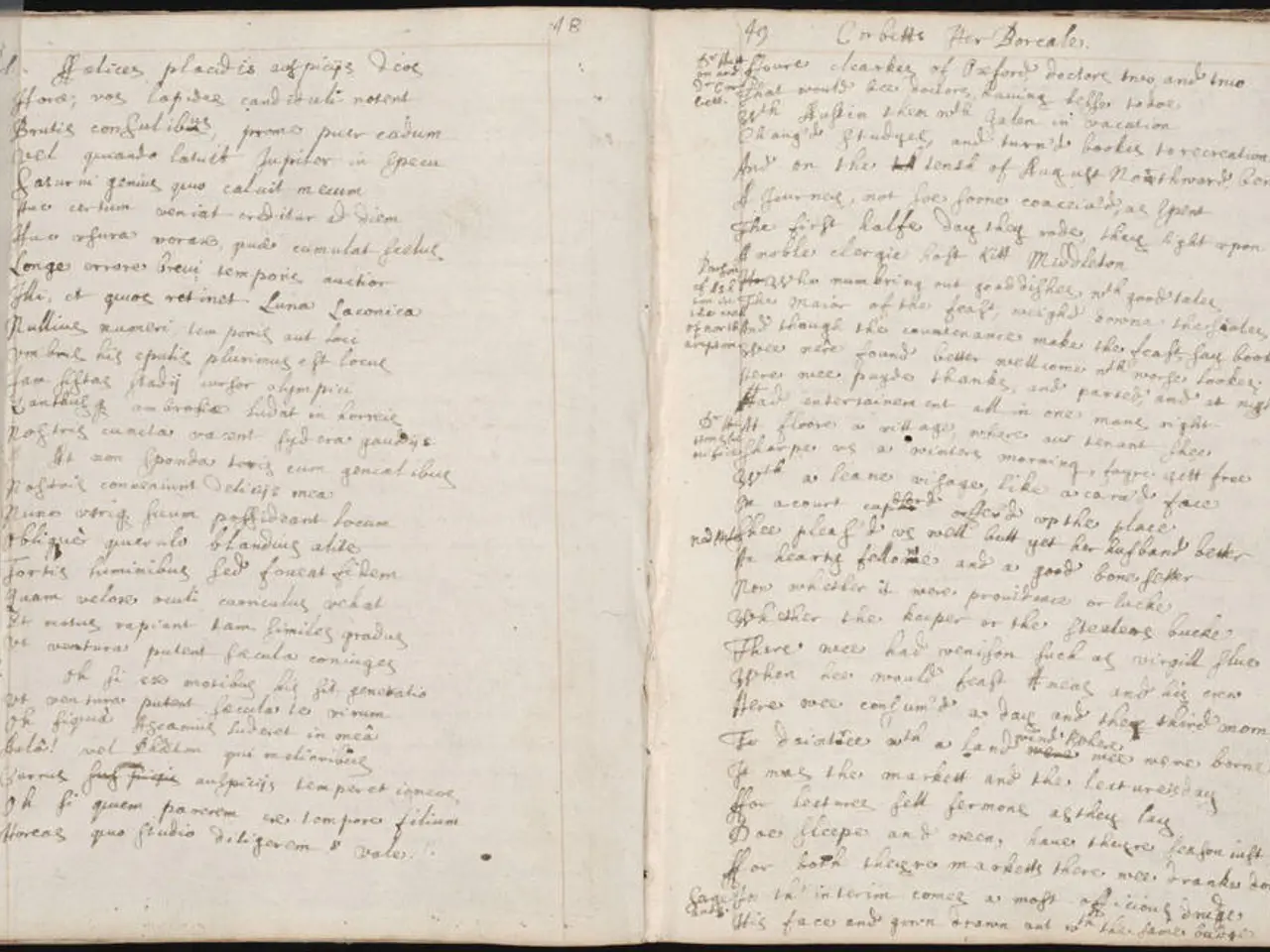Exploration of Indian Literature through the Lens of Orientalism by Vinay Dharwadker
In the realm of Indian literature, the influence of colonialism and Orientalist scholarship has long shaped Western interpretations, often reducing complex texts to simplified narratives. This colonial scholarly tradition, as critiqued by Edward Said, casts Eastern cultures as "exotic" or "other," a perspective that is particularly evident in the study of Indian literature[1].
Vinay Dharwadker, a renowned translator of Indian poetry and fiction, is significant in his challenge to this reductive Orientalist framing. His work emphasizes the plurality and diversity inherent in Indian literature, countering the monolithic or essentialist view that Orientalism often imposes[2].
Dharwadker's translations are notable for their careful attention to linguistic and cultural fidelity, aiming to preserve the aesthetic quality and cultural essence of the original texts[3]. He underscores the role of translation and the colonial encounter in the production and reception of Indian literature, noting that these processes were not merely linguistic transfers but involved power dynamics that shaped how texts were understood both in India and abroad.
The impact of colonialism on Indian literary studies is profound. It imposed Western epistemologies and literary frameworks onto Indian texts, leading to selective translations and interpretations that could marginalize non-canonical literatures and oral traditions. The plurality of Indian literary traditions—spanning vernaculars, classical languages, oral genres, and religious as well as secular texts—resists simplistic categorization and challenges Orientalist schemas that seek a single, unified Indian literary identity[4].
Dharwadker's work calls for a more situated approach that respects the indigenous intellectual traditions of India. He advocates for a pluralistic approach to studying Indian literature, one that recognizes the diversity of languages, regional traditions, and literary forms within the country[5]. He urges scholars to engage with vernacular literatures and the works of modern Indian writers in a variety of languages, thereby broadening the scope of literary study beyond the confines of Orientalist generalizations.
Critical of the Western-dominated tradition of translating Indian texts, Dharwadker is concerned with the loss of cultural nuances, stylistic richness, and local meanings that often result from such practices[6]. He argues that adopting a more nuanced and contextual approach can help decolonize the study of Indian literature, enabling a deeper understanding of its complexities and richness.
In conclusion, Dharwadker's scholarship serves to decenter Orientalist narratives by bringing attention to the complex interplay of colonial power, translation as cultural negotiation, and the heterogeneous nature of Indian literature. This approach reframes Indian literary studies from a postcolonial standpoint that acknowledges colonial legacies while reclaiming the diversity of India’s literary heritage beyond Orientalist generalizations[1][2].
- Dharwadker's work in the field of education and self-development, particularly literature, emphasizes the need for a more nuanced analysis of Indian literature to avoid the simplistic narratives often imposed by Orientalist scholarship.
- In the realm of fitness and exercise, personal growth might involve engaging in a thorough analysis of one's own ideas and beliefs to challenge reductive perspectives and promote understanding of complex themes.
- The study of Indian literature and its health-and-wellness implications can benefit greatly from Dharwadker's advocacy for learning about vernacular literatures and regional traditions, broadening the scope beyond Orientalist generalizations.
- Just as science and medicine handle various medical-conditions with thorough analysis and care, the study of Indian literature should strive to do the same, paying close attention to linguistic and cultural fidelity to preserve the aesthetic quality and cultural essence of the original texts.
- In the pursuit of personal growth, one might find inspiration in learning about authors such as Dharwadker, who is significant in his role of promoting learning, diversity, and plurality not just in literature, but in the broader realms of health-and-wellness, fitness-and-exercise, education-and-self-development, and sciences.




